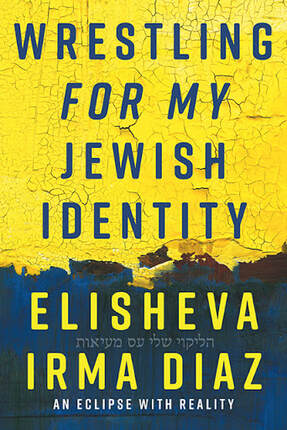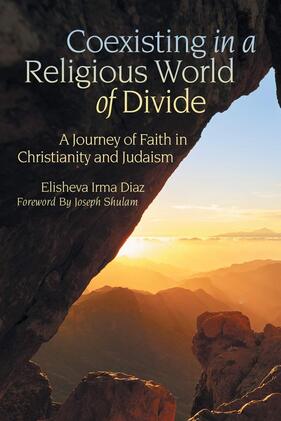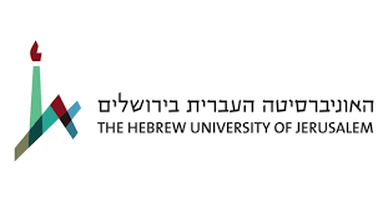About us
.Ayekah is a non-profit organization founded by Dr/Rabbi Elisheva Irma Diaz and established in 2011. Over the years we have developed a mission that we believe is on the cutting edge of God's will. The Prophets of old were very clear when they prophesied that the time would come when He would pour His Spirit out on all flesh regardless of our differences. In the midst of global division we must learn to coexist together in peace and harmony. We must learn to respect all faiths and cultures believing that God can reach us all and lead us into all truth. Ayekah strives for peace in the midst of religious chaos. We believe in the Messianic age and realize that the debate addressed by 1Rabbi Shlomo Riskin asking: “Messiah, is this your first coming or Second Coming” is very real and we welcome those that have arrived at either answer knowing that God is faithful to lead us all into His truth.
*We believe that just as it is a mitzvah to direct someone onto the path where s/he belongs, so too it is a crime to direct someone onto a path that does not belong to them. Each person is born with a journey particular to his or her soul, generally according to the culture into which he or she was born.There are universal truths,.. the inheritance of all of us since Adam and Noah. In them we are all united. But we are not meant to all be the same.
Our differences are as valuable to our Creator as our similarities. It is with this in mind that "we create space for the searching heart"
(*Thoughts above from the wisdom of the Lubavitcher Rebbe, of righteous memory; words and condensation by Rabbi Tzvi Freeman)
Our differences are as valuable to our Creator as our similarities. It is with this in mind that "we create space for the searching heart"
(*Thoughts above from the wisdom of the Lubavitcher Rebbe, of righteous memory; words and condensation by Rabbi Tzvi Freeman)
1Shlomo Riskin (born May 28, 1940) is an Orthodox rabbi, and the founding rabbi of Lincoln Square Synagogue on the Upper West Side of New York City, which he led for 20 years;[2][3][4] founding chief rabbi of the Israeli settlement of Efrat in the Israeli-occupied West Bank; dean of Manhattan Day School in New York City; and founder and Chancellor of the Ohr Torah Stone Institutions, a network of high schools, colleges, and graduate Programs in the United States and Israel. He belongs to the Open Orthodox stream of Judaism
About our name..
The name AYEKAH was given to our organization based on it's Hebrew meaning found in the Torah in the book of Bereshit/Genesis chapter 3:
8Then the man and his wife heard the voice of the LORD God walking in the garden in the breeze of the day, and they hid themselves from the presence of the LORD God among the trees of the garden. 9 So the LORD God called out to the man, “Where are you?”
AYEKAH: "Who, where are you" which invites a response. How do we respond?
Do we know where we are on our journey and just as important, do we know who we are? When God calls and He does, do we hide, do we run? Do we ignore His voice? Or do we say:
“Heneini,” (Hebrew: I am here).
In other words, “I am right here. I am coming out of hiding.” At this very moment, at this point in time, I am ready to do your will, ready to fulfill my soul’s purpose, ready to be myself and who you have called me to be.
It is this word "Ayekah" and it's profound meaning applicable to all humanity that inspired Rabbi Elisheva to establish Ayekah and to write the following books:
8Then the man and his wife heard the voice of the LORD God walking in the garden in the breeze of the day, and they hid themselves from the presence of the LORD God among the trees of the garden. 9 So the LORD God called out to the man, “Where are you?”
AYEKAH: "Who, where are you" which invites a response. How do we respond?
Do we know where we are on our journey and just as important, do we know who we are? When God calls and He does, do we hide, do we run? Do we ignore His voice? Or do we say:
“Heneini,” (Hebrew: I am here).
In other words, “I am right here. I am coming out of hiding.” At this very moment, at this point in time, I am ready to do your will, ready to fulfill my soul’s purpose, ready to be myself and who you have called me to be.
It is this word "Ayekah" and it's profound meaning applicable to all humanity that inspired Rabbi Elisheva to establish Ayekah and to write the following books:
|
Endorsements
Elisheva (Irma) Diaz is in my view one of the most dynamic Jewish leaders in the United States today. Her personal story is compelling, and the intensity of her faith is inspiring. Dr. Joe M. Davis Ph.D., Harvard University in the field of medieval Jewish history and literature. His area of academic specialization is the cultural and intellectual history of Ashkenazic Jews in the sixteenth and seventeenth centuries. Gratz College Scholars Program, Jewish Studies Elisheva (Irma) Diaz is an inspiration. I am always so impressed with her love for our traditions, her knowledge, her style and her commitment to her Jewish heritage. To sum it up, Elisheva is uniquely accomplished and a gift to humanity by G-d Himself. What a gem! Rabbi Richard E. Perlman Member, Vice President: Vaad HaRabbonim of America, "American Board of Rabbis" Elisheva (Irma) Diaz's book Wrestling For My Jewish Identity: An Eclipse with Reality is a testimony to the integrity, honesty and fearlessness of her journey as a descendant of B'nai Anusim. Through emunah (faith) and bitachon (trust) in G-d, Elisheva reaches through history to the core of her essence. Dr. Vanessa Paloma Elbaz, Founder and Director, KHOYA: Jewish Morocco Sound Archive, Casablanca, Morocco, Hadassah Brandeis Institute, Research Associate, Women's Studies Research Center. Faculty of Music Research Associate, Peterhouse University of Cambridge, United Kingdom. Elisheva Irma Diaz’s story, reads like a Hollywood script filled with drama, success, betrayal and the triumph of the spirit over all. A truly inspiring true story. Ayala Or-El, Editor/Journalist at Yediot America, contributor to the Jewish Journal and Tribe Magazine |
Endorsements
“Elisheva (Irma) writes about a journey of faith, a journey that she has traveled in person, a journey that took her through the glories of heaven down to the darkest, most prejudicial valleys of human behavior. The path that Elisheva (Irma) takes in her book is a journey of the best of faith in God to the duties of the heart. She avoids falling and sinking into the hopelessness of division and religious prejudice that is the daily diet for many religious communities, both on the Jewish and Christian side.” —Joseph Shulam, biblical scholar, author, and director of Netivyah Bible Research Institute; Elder/Rabbi of Netivyah Congregation, Jerusalem, Israel; author of many life-changing books and Biblical commentaries. “The extraordinary twists and turns of the spiritual journey of Elisheva Irma Diaz reflect and illumine the tumultuous era in which we live. The universally recognized border separating Judaism and Christianity is now a blur. Elisheva’s story shows that the insecurity that has ensued may also open us up to unimagined blessing.” —Mark S. Kinzer, PhD, author of Jerusalem Crucified, Jerusalem Risen (2018), and Searching Her Own Mystery (2015); Rabbi of Congregation Zera Avraham in Ann Arbor, Michigan. “The Brazilian government has hosted pastor/rabbi and diplomat Elisheva Irma Diaz since 1997, for fourteen consecutive years. She was invited annually to address dignitaries, heads of our state, and government leaders, with a special invitation to the governor’s palace to discuss biblical prophecy. In addition, she has a powerful voice with our business and religious leaders here in Brazil. Her ministry always brought people together from all beliefs and walks of life. Her goal in this writing is for all of us to learn to coexist in a world of religious division. Her journey of faith thus far is unique and, I believe, ordained by God. Her goal is for all of us to realize that both Christianity and Judaism are broken but that God dwells in them both. I endorse her efforts through this writing and support her in all her work. She is a friend to all who know her.” —Deputado João Leite de Silva Neto, Assembleia Legislativa de Minas Gerais (since 1995) (congressional representative). Prior to this, João Leite spent most of his athletic career as a soccer champion. He was selected for the Brazil national team during the 1980 Mundialito and the 1979 Copa América. Since 1995 he has served in Brazil’s legislative body. |
Sephardic History and the Crypto-Judaic Phenomenon
"Sephardic history includes Jews and their descendants who resided in or originated in Spain and Portugal, some of whom came from the Middle East and settled the Iberian Peninsula as early as 1100 BCE, flourishing in Spain until the 15th century. During the 1390s, Spanish Jews suffered conversion, execution, and expulsion in anti-Jewish pogroms, following earlier persecutions in France and England. After expulsion from Iberia (1492 from Spain and 1497 from Portugal), Sephardic Jews retained their identity no matter where they fled.
Sephardic history refers to conversos as those people who converted from Judaism to Catholicism during the era of Inquisitorial persecution. Other terms, such as anousim, marranos, and meshumadim, have been used over time to distinguish conversos by whether or not their conversion was “willing” or “by force”. Jewish converts were tried by the Holy Office of the Inquisition in Spain which punished all forms of religious heresy. Many conversos adapted to Catholicism over time and lost their cultural and religious connections to Judaism. However, others maintained hidden Jewish identities, later referred to as crypto-Jews.
As a subset of Sephardic history, crypto-Judaic study relates to the identities, practices, and beliefs of Sephardic people who hid their Jewish origins while publicly practicing Catholicism. Crypto-Jews were found in Spain and Portugal, and their colonial dependencies, including New Spain (present-day Mexico and the American Southwest,) Italy, the Philippines, Macao, Goa, Central America. During the 20th century, a revival of interest in crypto-Judaic history surfaced in the American Southwest, Europe, North Africa, Greece and Turkey."
Sephardic history refers to conversos as those people who converted from Judaism to Catholicism during the era of Inquisitorial persecution. Other terms, such as anousim, marranos, and meshumadim, have been used over time to distinguish conversos by whether or not their conversion was “willing” or “by force”. Jewish converts were tried by the Holy Office of the Inquisition in Spain which punished all forms of religious heresy. Many conversos adapted to Catholicism over time and lost their cultural and religious connections to Judaism. However, others maintained hidden Jewish identities, later referred to as crypto-Jews.
As a subset of Sephardic history, crypto-Judaic study relates to the identities, practices, and beliefs of Sephardic people who hid their Jewish origins while publicly practicing Catholicism. Crypto-Jews were found in Spain and Portugal, and their colonial dependencies, including New Spain (present-day Mexico and the American Southwest,) Italy, the Philippines, Macao, Goa, Central America. During the 20th century, a revival of interest in crypto-Judaic history surfaced in the American Southwest, Europe, North Africa, Greece and Turkey."
For your tax deductible donation:








